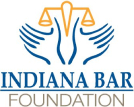
A patient should never have to endure a wrong operation or a medical procedure on the wrong body part. But cases of wrong operations occur with alarming frequency.
Wrong operations include procedures on the wrong organ, on the wrong side of the patient, and operations on the wrong patient. Wrong operations may require follow-up surgery to correct a medical error.
If you have been the victim of a wrong operation, you may be entitled to compensation under Indiana medical malpractice laws.
Injured due to a Wrong Site Surgery or Wrong Patient Surgery?
The Indianapolis medical malpractice attorney at the Law Office of Kelley J. Johnson helps people who have been harmed by a wrong operation. We work with licensed doctors and medical professionals to investigate whether a patient underwent a wrong operation and how it occurred.
Unlike many law firms, we do not charge a fee for medical experts to review your records. It’s part of the personalized service we provide our clients.
Call us today or use our online contact form to have us review your case free of charge.
Indiana Wrong Surgery Issues
Patient care today involves a large number of health care professionals and facilities, increasing the potential for errors. You may see a general practitioner, then be referred to a medical specialist, then go for diagnostic tests before being admitted to a hospital for an operation.
The more health care providers involved, the greater the chance of miscommunication there is. While doctors do make independent errors, wrong operations are generally a systemic failure of a healthcare delivery system at a hospital or ambulatory surgery center.
Indiana’s medical error reporting system describes wrong operations as any surgery or procedure performed on a body part that is inconsistent with the patient’s documented informed consent, excluding emergency situations.
According to Indiana’s 2010 Medical Error Report, the following wrong surgery issues occurred:
- 14 operations performed on the wrong body part;
- 1 surgery performed on the wrong patient; and
- 2 instances of the wrong operation performed on a patient.
How Wrong Surgical Operations Occur
All of the wrong operations reported occurred at hospitals. While no patient should undergo a wrong operation, there are a number of factors that increase the risk of wrong operations. They include:
- Time pressure—When a surgical team is under pressure to hurry through the pre-operative procedures, their haste increases the risk of a preventable medical error.
- Multiple surgeons—When a patient is undergoing more than one procedure during a single trip to the operating room or more than one surgeon is involved, the chances of a wrong operation increase.
- No Time-Out— About a fifth of hospitals still do not require doctors and surgical teams to observe a time out before a medical procedure to improve patient safety and reduce the likelihood of a wrong operation.
Even with the best medical care, some medical errors occur because doctors are human. But preventable medical mistakes, such as a wrong operation, should never occur. When they do, those responsible should be held accountable before they harm other patients.
Our legal system allows patients harmed by a wrong operation to seek compensation for their damages. That serves a public good. Focusing attention on a systemic problem by pursuing a medical malpractice lawsuit can prevent other patients from enduring a similar ordeal.
Contact a Surgical Error Lawyer in Indianapolis
The Indianapolis surgical errors lawyer at the Law Office of Kelley J. Johnson is experienced at investigating how wrong operations occurred and all of the potentially liable parties. We can advise you of your legal options.
With nearly 20 years of litigation experience, Kelley J. Johnson has the legal skill and experience to hold accountable health care providers that injure patients through wrong operations.
Call us today or use our online contact form to have us review your case free of charge.









